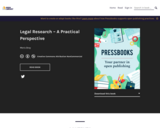
Word Count: 34442
(Note: This resource's metadata has been created automatically by reformatting and/or combining the information that the author initially provided as part of a bulk import process.)

Word Count: 34442
(Note: This resource's metadata has been created automatically by reformatting and/or combining the information that the author initially provided as part of a bulk import process.)
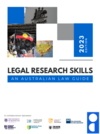
2023 Edition
Short Description:
This guide is designed to support students undertaking legal studies and contribute to the development of research skills in Australian law schools.
Word Count: 11819
ISBN: 978-0-6454198-0-1
(Note: This resource's metadata has been created automatically by reformatting and/or combining the information that the author initially provided as part of a bulk import process.)

Short Description:
This guide is designed to support JCU students undertaking legal studies and contribute to the development of legal research skills.
Word Count: 11801
(Note: This resource's metadata has been created automatically by reformatting and/or combining the information that the author initially provided as part of a bulk import process.)

Terence Lau & Lisa Johnson's The Legal and Ethical Environment of Business is a book for today's student, who expects learning to be comprised not only of substance, but also of interactive exercises and multimedia. This book streamlines the presentation of material to ensure that every page is relevant, engaging, and interesting to undergraduate business students, without losing the depth of coverage that they need to be successful in their academic journeys and in their professional careers. This is not Legal Environment of Business (LEB) ”light.“ Rather, this is LEB without risk of students' eyes glazing over in boredom or from lack of comprehension. This is LEB presented in an exciting way, where every page is interesting to students and relevant to real life.
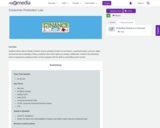
Students will be able to identify methods used by predatory lenders for prevention, comprehend basic consumer rights, and demonstrate knowledge of filing complaints when these rights are violated. Additionally, students will understand tactics employed by predatory lenders and be equipped with the skills to avoid falling victim to them.
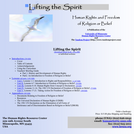
Freedom of religion or belief is an increasingly relevant topic in human society. Lifting the Spirit: Human Rights and Freedom of Religion or Belief provides comprehensive and thought-provoking lessons about the human right to freedom of religion or belief without surveying world religions or endorsing any particular belief. Lifting the Spirit relates the worship, observances, practices, and teachings of all religions and beliefs to fundamental human rights principles. It provides background information, ideas for taking action, and interactive exercises to help people learn about the freedom of religion or belief: a right that is guaranteed in Article 18 of the Universal Declaration of Human Rights. Designed for use in secondary classrooms, religious institutions, and youth advocacy organizations around the world, both the content and organization of Lifting the Spirit aim to be adaptable to many different national and cultural settings.
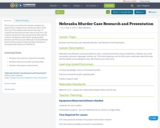
This lesson is an activity that will give students the opportunity to explore how criminal law affects their local area. The students will research the topic of criminal law (murders) in their state or local area. The students will practice their presentation skills and the students will improve their public speaking skills.
Business and Personal Law: Nebraska Criminal Murder
Research/Presentation Project by Gwen Davidson of Hastings Public Schools | CC BY NC SA

The nuts and bolts of preparing a New Venture Plan and launching the venture will be explored in this twenty-fifth annual course offering. The course is open to members of the MIT Community and to others interested in entrepreneurship. It is particularly recommended for persons who are interested in starting or are involved in a new business or venture. Because some of the speakers will be judges of the MIT $100K Entrepreneurship Competition, persons who are planning to enter the Competition should find the course particularly useful. In the past approximately 50% of the class has been from the Engineering / Science / Architecture Schools and 50% from the Sloan School of Management.
The course is offered during the Independent Activities Period (IAP), which is a special 4-week term at MIT that runs from the first week of January until the end of the month.
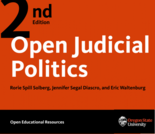
Short Description:
The impetus for this volume was a multitude of conversations regarding pedagogy and teaching related to our judicial process courses. Based on these conversations, we identified four main threads or needs of our colleagues: First, many of us bring or want to bring more “political science” into our classes, though we also want to avoid the high costs of reinventing successful existing courses to do so. Second, our programs all require a political methodology course, and we want to reinforce those lessons in our substantive courses. We want to encourage our students’ understanding of how to read and understand research studies as well as how to craft their own research questions. Third, we want to keep our courses as current as possible. And fourth, we wanted to find a way to bring the cost of our courses down, as we see so many students struggle with the high costs of a college degree. This volume (as well as any future editions) addresses each of these concerns. Data Dashboard
Word Count: 312882
(Note: This resource's metadata has been created automatically by reformatting and/or combining the information that the author initially provided as part of a bulk import process.)
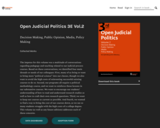
The impetus for this volume was a multitude of conversations regarding pedagogy and teaching related to our judicial process courses. Based on these conversations, we identified four main threads or needs of our colleagues: First, many of us bring or want to bring more “political science” into our classes, though we also want to avoid the high costs of reinventing successful existing courses to do so. Second, our programs all require a political methodology course, and we want to reinforce those lessons in our substantive courses. We want to encourage our students’ understanding of how to read and understand research studies as well as how to craft their own research questions. Third, we want to keep our courses as current as possible.
Vol. 1 is available at https://open.oregonstate.education/ojp3e-vol1/
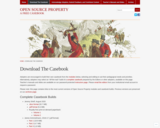
Open Source Property: A Free Casebook is a free resource for instructors and students of the first-year Property Law course at American law schools, and anyone else with an interest in the subject.
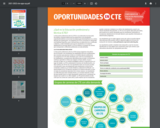
This four page publication reviews the 16 career clusters that apply to currently high-demand careers; it reviews how to identify and choose the right CTE program that fits each individual.
For more information about this and related resources, visit https://www.ecmc.org/studentseducators/student-resources/opportunities-guide-and-workbook
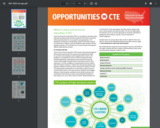
This four page publication reviews the 16 career clusters that apply to currently high-demand careers; it reviews how to identify and choose the right CTE program that fits each individual.
For more information about this and related resources, visit https://www.ecmc.org/studentseducators/student-resources/opportunities-guide-and-workbook
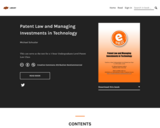
Short Description:
This can serve as the text for a 1-hour Undergraduate Level Patent Law Class
Word Count: 9506
(Note: This resource's metadata has been created automatically by reformatting and/or combining the information that the author initially provided as part of a bulk import process.)

This course is an intensive introduction to the U.S. law of intellectual property with major emphasis on patents, including what can be patented, the process of patent application, and the remedies for patent infringement.

Ep 1: How Do We Talk About Islam?
Ep 2: Advice to Young Journalists
Ep 3: Muhammad and the Qur'an
Ep 4: Islamic Law
Ep 5: Friends and Lovers of God
Ep 6: Difficult Scripture: Gender in the Qur'an
Ep 7: Violence Here and Abroad
Ep 8: Terrorism and the Media
This series aims to provide information about Islam from a scholarly perceptive as well as present the perspectives and voices of Muslims from Elon’s own community. The goals of this series are1) to increase public knowledge about issues relating to Islam; and 2) to encourage people to think more deeply about issues common to all religious traditions and societies. Ariela is a 2022 CAORC Multi-Country Research Fellow Alum who traveled to Senegal, Morocco, and Mauritania on her fellowship.

This course examines fundamental issues in the philosophy of law, including the nature and content of law, its relation to morality, theories of legal interpretation, and the obligation to obey the law, as well as philosophical issues and problems associated with punishment and responsibility, liberty, and legal ethics.
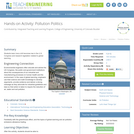
Students learn how a bill becomes law in the U.S. Congress and research legislation related to global warming.
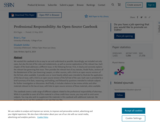
We wanted this casebook to be as easy to use and understand as possible. Accordingly, we included not only cases, but also the text of the rules and restatements, as well as concise explanations of the relevant law. Each chapter of the book addresses a different issue, in the following format. First, it clearly and concisely explains the relevant law governing that issue. Then provides the relevant text of any statutes, Model Rules, sections of the Restatement of the Law Governing Lawyers, or other sources, with a link to an open-source versions of the full text, when available. It provides one or more heavily edited cases intended to illustrate the application of the law at issue, with a link to an open-source version of the full text of the case. Each case is preceded by a brief summary of its facts, reasoning, and holding, and followed by questions intended to indicate subjects for further investigation or discussion. And finally, it includes citations to law review articles and other materials relevant to the law at issue, with links to open-source versions of those materials, when available.
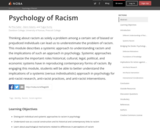
Thinking about racism as solely a problem among a certain set of biased or prejudiced individuals can lead us to underestimate the problem of racism. This module describes a systemic approach to understanding racism and the implications of such an approach in psychology. Systemic approaches emphasize the important roles historical, cultural, legal, political, and economic systems have in reproducing contemporary forms of racism. By engaging this module, students will be able to better understand the implications of a systemic (versus individualistic) approach in psychology for anti-racist research, anti-racist practices, and anti-racist interventions.